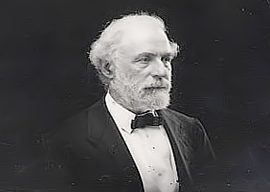
April 14, 2011

Robert E. Lee
Tuesday last, April 12, one hundred and fifty years ago, the American Civil War began when Confederate forces fired the first shots on Fort Sumter in Charleston Harbor, South Carolina. The bombardment lasted 34 hours, and Fort Sumter occasionally replied with fire of its own. Then the white flag went up and the Union troops within the fort surrendered. Not a single man had a scratch on either side. It looked as if neither gang could shoot straight. If only.
620,000 American lives were lost in the next four years, from Bull Run to Petersburg, before the unequal contest came to an end at Appomattox, Virginia, in 1865. 620,000 is a hell of a number of dead soldiers among an American population which stood at 31 million in total. Eleven slaveholding states withdrew from the Union to form the Confederate States of America over states’ rights, and Abe Lincoln pursued the war between brothers unrelentingly and in a sea of blood. As a University of Virginia man–The University, it’s called by native Virginians—I have always sided with the South, and not because of Gone With the Wind romanticism, either. What I learn as I get older is that like most wars, the Civil War was pursued by so-called Honest Abe because big Northern business wanted to conduct big business in the Union. They wanted to build railroads and wanted interstate roads and access to markets. The South wished to remain sleepy and agricultural. Lincoln did not make slavery an issue until two years after the first shots over Fort Sumter. But that’s not what we were taught when we were young. No sirree, it was all about slavery, they told us, and woe to those who had actually been correctly taught and knew the contest’s true nature—like the poor little Greek boy and University of Virginia man.
Lincoln did everything for effect, and his death even got him on the back of the five-dollar bill, whereas in my opinion he should have been tried in absentia for the crimes he committed during the war and the destruction he caused to one of the loveliest societies that ever existed, the antebellum South. The Civil War was America’s Peloponnesian War, an unnecessary bloodletting that saw the end of a federal republic and constitutional government. Internecine wars are very bloody—just think of the Spanish one—but never has a war been fought between one race of people—Scotch-Irish—with such deadly hatred from the outset.
Mind you, the South was doomed from the start, or so the smart money said, but the Southern boys fought so bravely and with such tenacity, the unequal contest was a damn close run until the end. Young men, some mere boys, who lacked a rational interest in the war fought as fiercely as young Spartans did back in Thermopylae. The North’s superior manpower, industrial strength, and financial muscle were checkmated by the South’s young men and its superior generals—great men such as Robert E. Lee, Stonewall Jackson, and J.E.B. Stuart. (The last two died in battle and Lee a mere five years after the war ended.) According to our very own Paul Johnson, Lee could have carried the day at Gettysburg in July 1863 if General Longstreet had supported Pickett’s charge with more concentrated artillery fire.